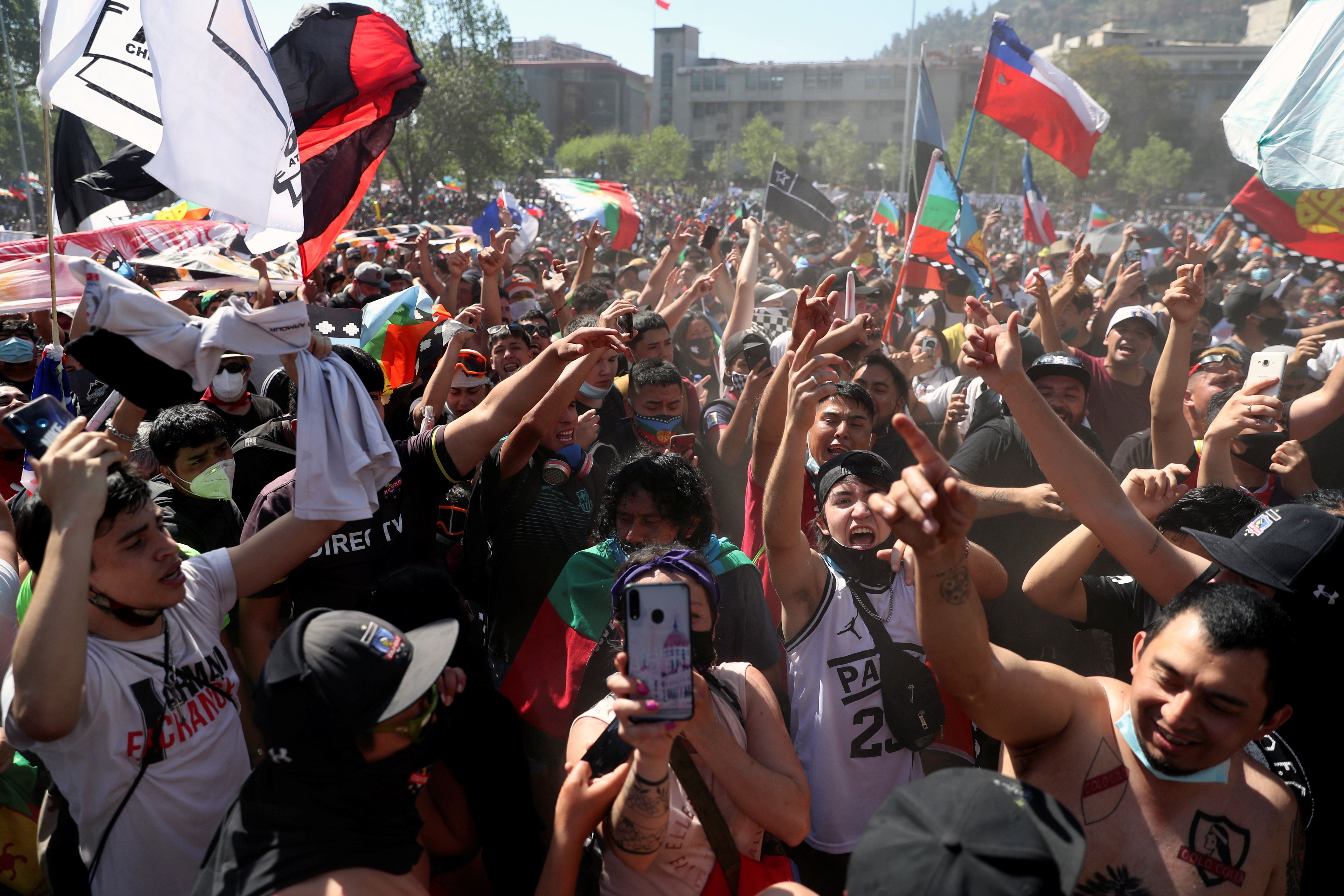What We’re Watching: Protests in Chile, US vs Google, Middle East economic peril
Protests ahead of Chile's referendum: It's been one year since massive protests over inequality rocked the normally staid and ostensibly affluent country of Chile. To mark that anniversary this week, tens of thousands of protesters hit the streets again, in part to call for a "YES" vote in Sunday's upcoming referendum on whether to rewrite the country's constitution. But some of the demonstrators turned to violence and looting, setting the country on edge as the crucial vote looms. Replacing the country's current constitution — which dates from the days of Pinochet's dictatorship — was a key demand of last year's protesters, who say that it entrenches the country's dizzyingly high inequality by limiting the role of the state and constraining political choices. If the current protests continue through the weekend, authorities and street activists alike are concerned violence may deter some people from voting.
Google hit with US antitrust case. The US Department of Justice has filed a lawsuit against the tech giant for maintaining an illegal monopoly over the search engine market. The ruling sets up an epic battle between government regulators and one of America's most powerful companies. Google, which says it faces more search engine competition than you'd think and that its services have actually boosted small businesses, will of course fight this with the lobbying and legal power you'd expect from a trillion-dollar enterprise. But the DOJ filing comes just weeks after a Democrat-led House Committee released a 450-page report alleging various ways in which Google, Apple, Amazon, and Facebook undermine commercial and political freedom. As a bipartisan consensus emerges on the need to rein in these companies, the DOJ's Google case is sure to be a watershed event in US regulation of Big Tech.
(Economic) trouble in MENA: A report this week from the International Monetary Fund warns that COVID-19 has inflicted a "deeper and more persistent economic impact" on potentially fragile states in the Middle East and North Africa, adding to the risk of major social unrest. The IMF blames a witch's brew of the global impact of coronavirus, low oil prices, coronavirus containment measures, the impact of "limited digitalization" and "limited remote working," weak social safety nets, cash-strapped governments, and the region's disproportionate share of the world's refugees and displaced people. The list includes war zones like Syria, Libya, Somalia, and Yemen. But Lebanon, Iraq, and the West Bank and Gaza qualify too. Even in Saudi Arabia and other wealthy Gulf states, where sizable protests are far less likely, governments will probably have much less money to spend for years to come.